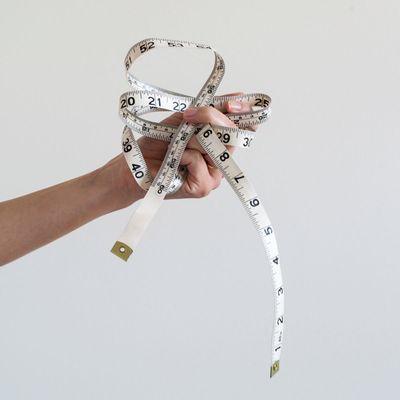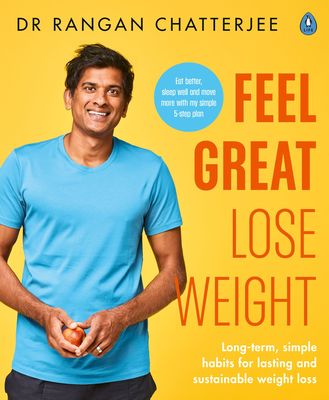
A Doctor’s Guide To Sustainable Weight Loss
Ditch Fad Diets
There are huge amounts of people who get disserved every January – they go on an extreme diet and find it works, but come February and March they put the weight back on and feel like their self-esteem has evaporated. If this sounds familiar, it’s important to understand you haven’t failed, but the diet plan you’re following has. Such diets fail because they usually tackle only one or two areas of life – what you’re eating and how you’re moving, rather than treating the whole life and the whole person.
Stress Less
Last year’s headlines have wreaked havoc with our waistlines – you may even have heard of terms such as ‘the corona stone’ and the ‘quarantine 15’. If you look at the science, you can understand what’s going on. Science shows 80% of us change our eating habits in response to stress – 45% of us eat more and 35% of us eat less. 2020 was one of the most stressful years in living memory for the majority of us. Almost half of the population are going to eat more in response to this stress, meaning weight gain is inevitable. If this is you, you don’t need a new diet in January, you need help managing your stress levels. So often, we’re trying to fix the wrong problem. It’s not about a lack of willpower, it’s about understanding what the real issues are.
Forget The Perfect Diet
In my years of clinical practice, I’ve seen tens of thousands of patients and have seen people thrive on a variety of diets, which is why I’m diet agnostic and have no preference as to the eating style you adopt. Some clients thrive on a low-carb diet, while others are better suited to a Paleo or vegan diet. So what is the common denominator with these diets? They are all based on whole foods. You can do low-carb badly, using low-carb junk foods, and you can eat a high-carb, vegan diet badly. Once you’re eating a whole foods diet, you can start to play around. Try lowering the carb intake for a few weeks and see if it works for you. It’s important to experiment and see what works for you – everybody is so different. When it comes to the diet that’s going to work for you, your genes play a large role, but so does your microbiome.
Think About How You Exercise
The common narrative is eat less, move more, but there’s a problem here. Moving more doesn’t always mean burning off more. People think that if they step on a treadmill and burn 300 calories, that allows them to add 300 calories on to their daily allowance, but the body doesn’t work like that. Our bodies can actually compensate and burn off fewer calories. Can you lose weight without doing any exercise? Yes you can, but I wouldn’t recommend it. Exercise supports your mental health and confidence in a way other things can’t. The movement you do should be is something that’s in harmony with the rest of your lifestyle. If you’re killing it at work and then running for an hour after work four times a week, this could be too much. When you’re stressed, you release cortisol, the stress hormone, and high-intensity exercise such as running also increases cortisol. Prolonged high cortisol levels make the body thinks it’s under attack, making it hold onto fuel and fat to prepare you for the ‘emergency’ that it thinks is to come. Try cutting back on your high intensity sessions, swapping them for yoga and Pilates – your stress levels will come down, you’ll sleep better and you’ll start losing weight.
Beware Of Junk Foods
I refer to the likes of chocolate bars, crisps, sweets and salty, fatty meals as ‘blissy foods’, because they trigger the bliss point in your brain. These types of foods raise levels of dopamine, the learning molecule that teaches you to learn certain behaviours; it’s the molecule alcoholics and gamblers release. If you’ve been eating high-sugar, high-fat foods for years, your brain will release dopamine at the mere sight or smell of these foods, making it impossible to resist them. Once we’ve eaten these foods and experienced the bliss they provide, our brains will release dopamine in anticipation of eating these foods again. So, it’s not you being weak – it’s your biology, but you can recondition it. One of the best things you can do is control your environment – don’t bring these foods into your house in the first place, and instead, keep tasty wholefoods to hand for when a craving does strike. Nothing beats a super-sweet apple or satsuma, and if you’re really struggling with a sweet craving, drink a glass of sparkling water.
Eat One-Ingredient Foods
One of the most powerful pieces of health advice is to eat real food – i.e. minimally processed foods that are as close to their natural state as possible. This one simple habit has huge benefits. For example, this can be as simple as having some lamb, sweet potatoes and broccoli for dinner. When you eat in this way, you’ll feel fuller for longer and are less likely to snack afterwards. Plus, when you eat these kinds of foods, your body will automatically manage your weight for you. Think minimal ingredients – food that your grandparents would have eaten. One of the simplest ways to eat more one-ingredient foods is to shop on the outermost aisles of the supermarket, where most of these ingredients tend to live, and stock up on store cupboard essentials such as tinned tomatoes, canned fish, coconut milk, beans and brown rice.
Switch Up Your Breakfast
If you wake up and eat a bowl of granola with low-fat yoghurt, only to feel peckish two hours later and nibble on some biscuits, and then feel ravenous at lunchtime, it’s time to re-think what you eat for breakfast. The first meal you eat can set the tone for the rest of the day – it can impact your mood, concentration, hunger and can have a powerful influence on your subsequent choices. Try having your ‘dinner foods’ for breakfast instead – think goat’s cheese with roasted vegetables; eggs, broccoli and potatoes; salmon and vegetables; or dahl and rice. This might take a bit of extra planning, but the knock-on effects can be life changing.
Eat Mindfully
Research shows that when we eat while distracted, not only do we eat more at that meal, but we also eat more at all subsequent meals. When working from home, make an effort to take a proper lunch break, shutting your laptop and doing one or two minutes of 3-4-5 breathing, which can really help reduce your stress response. When you eat in a stressed state, you don’t digest and process your food properly, and you won’t feel as satisfied. Changing how you eat, as opposed to what you eat, can have huge consequences.
Understand Why You Eat
We used to eat to fill a hole in our stomachs, but we now eat to fill a hole in our hearts. This may sound morose, but it’s true. Is it a new diet you need, or is it something you’re trying to fill? For example, if you’re lonely, bored, or have had a bad day at work, and haven’t been outside all day after several Zoom calls, chances are you’ll be reaching for the Haagen Daaz in the evening. If you feel you do eat to fill a gap, consider an alternative – phone a friend, have a bath, do a workout, write in a journal, or go to a different room where you don’t usually snack (we often get used to certain behaviours in specific environments, such as eating crisps on the sofa).
Sleep More
For many people, improving your sleep could be the most important thing you do for weight loss. If you sleep for five-and-a-half hours per night as opposed to eight hours, on average you eat 22% more the following day. Over five days of not sleeping well, this equates to an extra day’s worth of calories. When you haven’t slept well, you are also less able to resist temptation due to changes in the brain, meaning you’re more likely to reach for sugary, junk foods.
Evaluate Your Snack Habits
We have a culture of snacking now that we didn’t have 50 years ago. A recent study found just 10% of us eat three times per day as we did in the 1970s, with the top 10% of these people now eating ten times per day. Reducing how much you snack can be really important for some people in terms of losing weight, but also consider why you are snacking. Are you eating enough at mealtimes? If you are hungry two hours after a meal, you’re not eating enough – a decent, well-balanced meal should keep you full for around four hours. If you feel the urge to snack, experiment with increasing your protein intake, which will keep you fuller for longer. Also understand that consistently snacking will mean your blood sugars are constantly raised, never putting your body into a fat-burning mode.
Feel Great Lose Weight: Long term simple habits for lasting and sustainable weight loss is published by Penguin Life (£16.99). Dr Rangan Chatterjee also launches a new show on BBC Radio 2 and BBC Sounds from Sunday 24th January, 10pm-midnight. For more information visit DrChatterjee.com
DISCLAIMER: Features published by SheerLuxe are not intended to treat, diagnose, cure or prevent any disease. Always seek the advice of your GP or another qualified healthcare provider for any questions you have regarding a medical condition, and before undertaking any diet, exercise or other health-related programme.
DISCLAIMER: We endeavour to always credit the correct original source of every image we use. If you think a credit may be incorrect, please contact us at info@sheerluxe.com.
